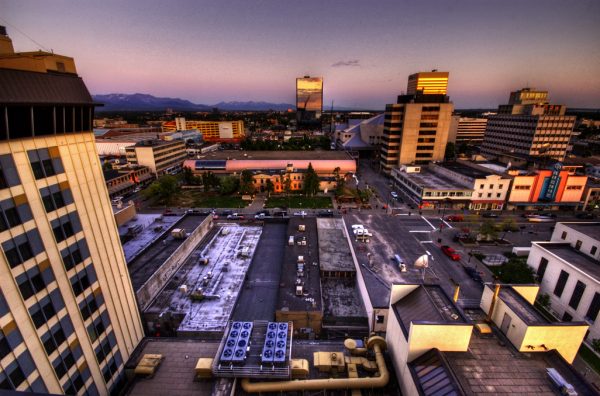
Elected officials in Anchorage are bracing for the effects of the Governor’s line-item budget vetoes and a stalemate in the Legislature over future funding. Local leaders expect a broad range of impacts affecting just about every area of residential life.
Anchorage Mayor Ethan Berkowitz isn’t mincing words about what he thinks of the pending fiscal situation.
“This is an act of budgetary terrorism that is going to affect and diminish Alaska’s future,” Berkowitz said Wednesday by phone.
Berkowitz’s Administration and the city’s Assembly have been preparing for bad news from the Legislature for months. But the latest salvo in the fiscal battle is raising more alarms.
In the past, the mayor has criticized the governor’s budget proposals for not reducing costs, merely shifting them off of state coffers and onto local governments. Property taxes on an average-priced home in Anchorage — about $340,000 according to the real-estate site Zillow — are already expected to rise by about $200 next year to close a gap created by a drop in school bond debt reimbursements from the state. Now, though, Berkowitz expects so many deep cuts will have a compounding effect.
“The consequences to the municipality are far flung. They are to the property owners here who are going to see an erosion of their property values because we are going to see massive job loss as a direct consequence,” Berkowitz said. “We’re anticipating a loss of consumer buying power, which has ripple consequences through the economy.”
More immediately, the city is worried about homelessness and public safety, two issues that have been at the front of Anchorage politics for the last several years. According to Berkowitz, if state funds go away to the array of social service providers working with vulnerable Alaskans, it will be felt on the streets, in the parks, and along the city’s trails.
“We are anticipating a surge in the number of people who are homeless because the homeless support services are going to basically evaporate from the state,” he said. “That is going to have dire consequences for public health and public safety, as well as our ability to enjoy all the resources that are part of Anchorage.”
Social service providers share the concerns about compounding damage. Rachel Morse directs the Alaska AIDS Assistance Association, which helps support people living with HIV and AIDS. Organizations like hers are having a hard time anticipating what the looming cuts will mean, because so many of the targets are overlapping.
“Some of our clients are homeless or vulnerably housed, so if services are cut they may need more support from us in those realms. And like many, we serve an aging population, so cuts to senior programs will impact them, as well,” Morse said.
She added that time spent monitoring and preparing for different budget scenarios is all time the organization is not spending on client services, outreach, or education.
The city’s Assembly is in a similar situation. Forrest Dunbar represents neighborhoods in East Anchorage, a district that includes lots of seniors, university students, lower-income families and medical professionals. All of whom are expected to be impacted by the budget vetoes. Dunbar can’t recall a gubernatorial administration in Alaska so severely hindering the city’s priorities.
“I think this is unprecedented, this use of the veto power and this refusal to override by the governor’s allies in the Legislature,” he said.
At its most recent meeting, the Assembly passed a symbolic resolution by a vote of eight to two urging legislators to override the governor’s vetoes.
The Assembly’s Budget Committee is devoting it’s entire next session to figuring out the financial impact on municipal departments should the budget cuts stand.
Zachariah Hughes reports on city & state politics, arts & culture, drugs, and military affairs in Anchorage and South Central Alaska.
@ZachHughesAK About Zachariah




